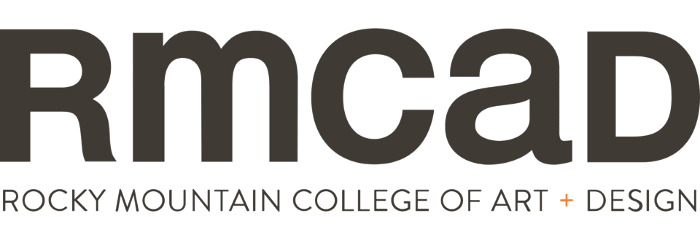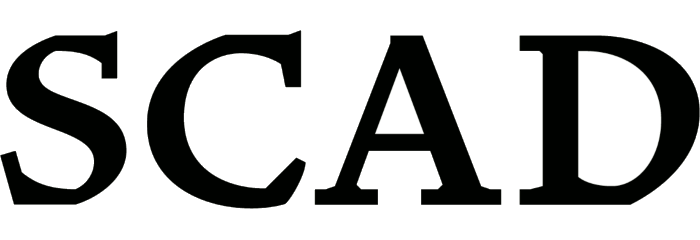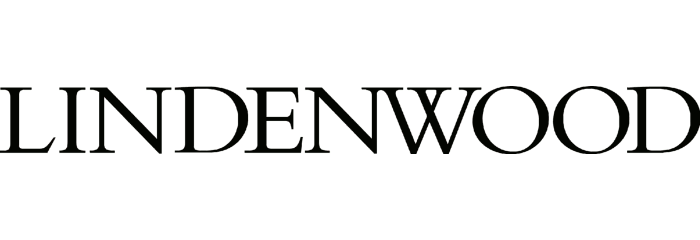2025 Most Popular Online Art and Design Degrees
Our list of popular online art and design degrees can help you develop your creative and technical skills in a virtual environment. In interviews with a professional artist/designer and creative director, both emphasized how online art students should cultivate mentorship opportunities and seek programs aligned with their long-term career goals.
Key Takeaways:
- The University of Maryland Global Campus earns the #1 spot as the most popular online art degree thanks to its strong arts graduate numbers — 221 graduates last year.
- Arizona State University Online ranks among the top 5 for popularity but stands out as #1 for median graduate earnings at $46,563 for its bachelor's in art degree.
Our rankings are based on the number of art program graduates, which indicates a high level of demand and trust in the program. For more details, see our methodology.
2025 Most Popular Online Art and Design Degrees
| Rank | School | Graduates | Annual Tuition | Median Salary | Recommendation |
|---|---|---|---|---|---|
| University of Maryland Global Campus | 221 | $14,970 | N/A | 70% | |
| Liberty University | 103 | $11,700 | $45,177 | 75% | |
| Full Sail University | 93 | $26,417 | $41,418 | 62% | |
| Rocky Mountain College of Art and Design | 79 | $22,200 | $45,743 | N/A | |
| Arizona State University, Online | 59 | $24,780 | $53,244 | 93% | |
| Savannah College of Art and Design | 40 | $41,130 | $42,148 | 94% | |
| Academy of Art University | 32 | $35,112 | $55,579 | 62% | |
| Lindenwood University | 6 | $15,750 | N/A | 93% |
2025 Most Popular Online Art and Design Degrees - Program Details
- Graduates: 221
- Annual Tuition: $14,970
- Median Salary: N/A
- Recommendation: 70%
Why we like them: UMGC is the #1 most popular program for total graduates, with over 200 graduates with this degree. Students interested in studying art through the online bachelor's in general studies at UMGC can do so by customizing their curriculum to include art-related courses, such as digital design, art history, or visual communication.
- Graduates: 103
- Annual Tuition: $11,700
- Median Salary: $45,177
- Recommendation: 75%
Why we like them: With 103 BFA graduates, Liberty demonstrates a strong capability to support you all the way to graduation. The curriculum integrates a hands-on practicum and internship hours, and it includes access to the Adobe Creative Suite and electronic textbooks at no additional cost, which could translate into annual savings of $800 to $2,000.
- Graduates: 93
- Annual Tuition: $26,417
- Median Salary: $41,418
- Recommendation: 62%
Why we like them: FSU's game art degree includes a high-performance MSI laptop, Adobe Creative Cloud, Xencelabs pen tablet, and an Apple iPad, all of which empowers you to produce industry-level work from your first term. The curriculum is driven by a production pipeline mirroring real-world game studios, prioritizing project-based learning in interactive 3D art, animation, and environment design.
- Graduates: 79
- Annual Tuition: $22,200
- Median Salary: $45,743
- Recommendation: N/A
Why we like them: RMCAD merges illustration and graphic design into its bachelor's program. You are assured a four-year portfolio development process, culminating in a professional body of work with significant industry relevance. Online learners in Colorado receive access to professional-grade facilities like the FabLab and PrintLab when on campus.
- Graduates: 59
- Annual Tuition: $24,780
- Median Salary: $53,244
- Recommendation: 93%
Why we like them: ASU offers one of the most distinct online fashion design degrees, thanks to its first-of-its-kind partnership with Optitex, which gives you one year of access to industry-standard 3D patternmaking software after graduation. This access empowers you to keep developing skills and strengthening your portfolio.
- Graduates: 40
- Annual Tuition: $41,130
- Median Salary: $42,148
- Recommendation: 94%
Why we like them: TSCAD’s BA in Sequential Art has an industry-oriented curriculum with 50 credit hours centered specifically on sequential art, with options for hands-on internships, SCADpro projects, and a business-focused elective. Furthermore, SCAD offers direct pathway into advanced degrees in both the B.F.A. and M.A./M.F.A. in Sequential Art.
- Graduates: 32
- Annual Tuition: $35,112
- Median Salary: $55,579
- Recommendation: 62%
Why we like them: AAU’s Visual Development BFA program blends a digital and traditional art curriculum with practical learning outcomes. Courses delve into advanced perspective, digital manipulation, UI/UX for visual development, and color scripting, culminating in collaborative production experiences such as Studio X.
- Graduates: 6
- Annual Tuition: $15,750
- Median Salary: N/A
- Recommendation: 93%
Why we like them: Lindenwood's art and design program has several options for specialization in areas such as graphic design, digital art, photography, and even K-12 education certification. Facilities like the Print Lab and Makerspace offer a rare hands-on advantage, while the program's connection with practicing St. Louis artists encourages professional engagement.
What Experts Say About Online Art & Design Education
To better understand the value and limitations of studying art and design online, we spoke with two seasoned artists who’ve worked across global studios, museums, and digital platforms. Paola Minekov and George Pettigrew shared what today’s students should look for in an online program, as well as what really drives creative success beyond the classroom.
"Think Like a Creative Leader": Building a Career Through Online Study

Artist and Multimedia Designer
"From recent graduates to seasoned professionals, many are now turning to digital platforms to upskill and expand their creative toolkits — a trend reflected in the booming online course economy.
Strong art and design programmes, regardless of the delivery method, are designed to teach students how to think outside the box, solve complex problems with creativity, and imagine bold, innovative outcomes, then develop the technical and strategic skills needed to make those ideas a reality. The right programme will not only teach you to make great work, but to think like a creative leader.
Creative thinkers are in demand across a wide range of industries, from marketing and media to tech and product design.
The key advantage of studying in person remains the social element: the ability to connect deeply with peers, collaborate in studio spaces, and build networks organically, all of which can open doors professionally down the line. But for some students, particularly mature learners, career changers, or those with busy or remote lifestyles, this may be less of a priority.
Fortunately, many online programmes are now far more interactive than they were a decade ago. The best ones offer live workshops, collaborative projects, and even optional in-person meetups. These elements can go a long way toward recreating the sense of community that traditional programmes offer.
When evaluating online programmes, seek out accredited institutions with a strong reputation, industry connections, and transparent graduate outcomes — a must in today's creative economy."
EXPERT TIP
"Look for courses that offer personalised feedback, portfolio development support, and access to professional mentorship. Bonus points for those that encourage cross-disciplinary collaboration... Being able to understand and communicate with professionals who work in related fields is invaluable."
Don’t Wait Until You Feel “Ready” — Advice from a Creative Director

Creative Director
"I've reviewed portfolios from designers with degrees from RISD, SCAD, and increasingly, online programs I'd never heard of before. I care far less about the degree and much more about whether they've actually done the work. That's become the biggest shift in hiring. An online art or design degree can open doors to UX/UI roles, motion graphics, branding, even creative strategy positions if your portfolio demonstrates real capability.
I've worked with graduates who earned their BFA completely online and landed positions at agencies, startups, or contracts with major brands. Most employers now evaluate based on results: what you've created, how you think, and how you communicate ideas. A prestigious diploma carries no weight when your case studies lack substance.
An online art or design degree can open doors to UX/UI roles, motion graphics, branding, even creative strategy positions...
Online learning offers one unique advantage: you often develop stronger asynchronous collaboration skills, which makes you surprisingly effective in remote positions. The downside? You can miss authentic critique. Some programs fail to replicate the brutal but growth-rich feedback culture of traditional studios. For me, that's a significant weakness.
So if you're considering an online program, ignore the marketing polish. Research who actually teaches. Are they working professionals? Do they require you to ship real projects? Seek programs that challenge you beyond your comfort zone. Comfort zones never prepare anyone for surviving intense creative reviews.
And one final thing: don't wait until you feel 'ready.' Freelance while studying. Volunteer to redesign websites for friends. Share work in progress publicly. Employers aren't waiting for your capstone project but are observing how you grow and adapt."
Overview of the Best Online Art Degrees
Online bachelor's in art degrees are available in several subfields. Curricula vary based on the program, but students can major in commercial art, architecture, computer animation, fashion, graphic design, visual communication, art history, and web design, to name a few. It’s also possible to double major or get a dual degree in multiple disciplines. In general, online learners should spend some time determining which medium, style, and subject matter they find most appealing so they can begin mastering specific techniques and developing their creative processes. This way, art students may graduate with a set of professional and technical skills, an understanding of the creative industry, and a polished portfolio in their chosen arena.
Enrollment in an online bachelor's in art program requires applicants to have a minimum 3.0 high school GPA, letters of recommendation, and a personal statement. Competitive programs may further require that students submit a portfolio of artwork. While an online degree in art typically takes four years to complete, accelerated programs are designed to be finished in as little as two-and-a-half years.
What Kind of Art Degrees Are There?
Below we list some of the most common art degree concentrations available:
Computer Animation: This type of animation is used in film, television, games, and more to add special effects or create a new work from scratch. Specializing in computer animation can teach you how to use technology in order to create digital art.
Game Art and Development: This focus centers around the concepts, technology, and storytelling that become video games. Through both traditional and digital media, game artists and developers work through the various phases that lead to a complete game.
Fashion: Specializing in fashion can lead to careers in designing, retail, management, and textiles. An art degree with a fashion focus provides students with an understanding of business, current trends, and industry technologies.
Interior Design: Interior designers create comfortable, creative spaces in all kinds of buildings, from homes and bars to hospitals and offices. Specializing in interior design helps students learn some skills of the trade, like how to bid on projects and lead teams with a creative vision.
Painting: Painters should have a thorough understanding of materials, art history, and art theory. Pursuing a painting specialization provides students with the skills and knowledge to improve their skills and work as professional artists.
Photography: Photography has a long history and utilizes many different technologies. Specializing in photography can teach students to use both film and digital cameras, editing software, photo development, and how to publish their work.
Are you unsure about pursuing an art degree? Explore our comprehensive list of online bachelor's programs, including online degrees focused solely on fashion, photography, video game design, and more.
Accredited Online Art Schools
Accreditation is a process in which third parties evaluate colleges and universities to determine whether they offer students a quality education. Attending an accredited institution has several benefits, and it's especially important for online students because it signals a program's credibility to potential employers and qualifies students for federal financial aid.
Prospective students seeking an online art degree should consider enrolling in an art school accredited by the — an organization that sets nationwide standards for higher education in the arts. Alternatively, students should ensure that their school has been evaluated by an accrediting agency recognized by either the or the .
Common Courses in Art Degrees Online
Students enrolled in an online bachelor's of art program often have some flexibility when developing the coursework to fit their educational goals. For instance, they can choose to take online classes in visual marketing, consumer psychology, and design technology. Many modules also involve gaining hands-on experience with specific tools or software, thus helping students develop applied skills in their chosen area of expertise.
While classes vary by program, the following is a list of common online courses students can expect to take with a Bachelor in Art Design:
Art History
Students taking this class gain an understanding of historical art forms with the objective of contextualizing their personal work in a particular style or movement. In addition to learning about how techniques have evolved, art history classes also cover how cultural movements influenced artistic expression.
Color Theory
In this fundamental course, students learn about the basics of color harmony. Specifically, they explore why and how different color combinations complement each other from a psychological and visual arts perspective. Students also learn about the differences associated with applying color theory in two- and three-dimensional mediums.
Composition and Visual Design
Usually aimed at students majoring in certain niches, including digital photography, film, or multimedia, this course introduces the basics of visual storytelling. Students delve into foundational concepts — such as exposure, depth of field, and movement — and learn how these factors affect image quality. They also typically gain hands-on experience with an array of camera equipment.
Design Thinking
In this course, students learn how to effectively visualize and present their ideas to an audience. Topics covered include digital media, graphic design, and streamlining the creative process. Students taking this class have the opportunity to gain valuable problem-solving and communication skills in marketing and interior design.
What Can You Do With an Art Degree?
Graduates with an art degree may find employment in a range of settings, including galleries, museums, studios, schools, and nonprofits. As an alternative to traditional employment, many artists choose to work as independent contractors or freelancers providing specific services or selling artwork to clients.
As with other professions, job opportunities in this field largely depend on the wider economy — especially the demand for artistic services and products. For instance, the Bureau of Labor Statistics (BLS) predicts only a 2% job growth for , which is significantly slower than the average for all occupations.
Artists with bachelor’s degrees online may qualify for a range of . An online fine arts degree offers the chance for students to develop their skills in a particular area, signaling to employers that a graduate has formalized knowledge and training.
Below is a list of potential career paths for art graduates, along with median annual salary and job outlook data from the BLS:
Archivists, Curators, and Museum Workers
manage private and public artwork collections. This may involve identifying and appraising new pieces, maintaining existing catalogs, and planning exhibitions. Some professionals in this vein may also work as independent consultants helping private collectors acquire specific kinds of artwork.
Art Directors
are managers that oversee the work of an artistic team. Their job involves conceptualizing artistic objectives, approving designs, and overseeing the completion of projects. Art directors can work for publications, movie studios, or even public relations firms.
Fine Artists
create pieces that typically convey emotions or meaning through various mediums. They may also fashion everyday items into artwork, like furniture or cutlery, that perform specific functions. Many fine artists display their work in museums or galleries.
Graphic Designers
are responsible for visualizing and communicating complex ideas to different audiences. They tend to work with specific design software in order to present important information to clients. Graphic designers often use their skills to construct websites, develop product packaging, or create logos.
Photographers
are usually freelancers and may specialize in specific genres, such as photojournalism, portraiture, wedding photography, or cinematography. Photographers may also work in postproduction, editing pictures and videos to meet client needs.
Special Effects Artists and Animators
use software to create images, videos, and other visual media designs. They may work on movies, video games, television commercials, and diverse media art forms, often completing a specific part of a larger project.
Is an Art Degree Worth It?
The worth of an art degree can vary based on an individual's career goals and financial circumstances. For example, students interested in a career emphasizing creativity and self-expression may benefit from the skills and industry connections sometimes derived from earning an art degree online. However, an art degree may not be as flexible as other bachelor's credentials — particularly when it comes to developing widely applicable skills.
Consider the following pros and cons of an online art degree:
Potential Benefits
Passion projects
reports that most artistic careers have a high job satisfaction rate. It's common sense that when you pursue a career in a field you love, you’re more likely to find satisfaction in the work.
Interesting people
Art is a creative pursuit, so the people who pursue this field of study can be some of the most fascinating, compelling folks. You’re almost guaranteed to engage with a plethora of captivating artists during your higher education experience and beyond.
Career options
Art is a diverse field with many degree and career options. From music and acting to public installations and cultural histories, art takes many forms and paths.
Potential Drawbacks
Fluctuating stability
In 2020, that 10 million creative jobs were lost because of COVID-19. Due to the collaborative nature of the arts, there are many factors that play into job availability. Funding, public interest, and location can make it difficult to find and keep work.
Inconsistent pay
If an artist is working based on commissions, then they may only make small sums on an inconsistent basis. Pay differs greatly between high-ranking jobs and self-employed freelance artists. For example, — a position that most often requires at least a bachelor's degree — have a median annual salary over six figures, while make barely over the median for all U.S. workers, at just $49,960.
Lack of respect
Although art is seen as an important part of our culture and lives, artists aren’t always valued in our society. Often, jobs in science, business, and politics are .
FAQs About Online Art Degrees
Can I Get an Art Degree Online?
With many schools offering distance learning options, it is possible to get a fine art degree 100% online. Online students typically use tools, such as video streaming, to learn asynchronously. However, degrees that include project-based learning may use a hybrid model, combining online learning with on-campus visits to attend collaborative workshops.
How Long Does It Take To Get an Art Degree Online?
A bachelor's degree in art requires a minimum of 120 credit hours and takes four years of full-time study to complete, whether it's online or in person. By contrast, students can achieve an associate or master's degree in just two years. Part-time learners who take fewer courses per semester generally take longer to finish.
What Art Degree Makes the Most Money?
Depending on their chosen specialization, art graduates may qualify for in education, creative writing, and web development. While a bachelor's is the minimum requirement for entry-level positions, a master's or doctoral degree can lead to lucrative roles — such as a postsecondary art teacher.
Student Reviews of Online Art & Design Programs
When I started my online classes at AAU C.P. was the director of the online education as well as the onsite. After attending about a year they brought in a new director named Lourdes Livingston. Since then I have noticed a steady downfall in quality. Another problem is if you have to repeat a class (which I did due to medical) the curriculum is exactly the same. It's as if the instructors really don't have the needed credentials to be our Professors. I have heard the onsite education is so much better,... Read More
Review Date: 1/29/2016
Would Recommend: No
Helpful for Career: No
I have studied at many different schools while obtaining my degree and the Art Institute has been one of the best that I have attended. Beyond just the convenience of being able to do my classwork on my terms around work and not having to deal with the hassle of going to a campus, I had academic advisers who works hard to help me achieve my goals and help me when things weren't going as they were suppose to. I had a financial adviser who helped me understand every bill I received and helped me get... Read More
Review Date: 12/22/2017
Would Recommend: Yes
Helpful for Career: Yes
I was really disappointed. The idea of one stop sounded so great. What a disappointment.
Review Date: 7/10/2013
Would Recommend: No
Helpful for Career: No
The University of Kentucky is more than a campus, but a family. Being a student means automatically becoming a member of the Big Blue Nation and a tradition of more than just sport-related achievements. As a top research university, UK always strives to maintain its ranks among other universities by pushing and encouraging students. Even with the temperamental weather forecasts, campus is beautiful throughout the year and you are sure to keep those pesky "freshman 15" away from walking to all of... Read More
Review Date: 9/3/2014
Would Recommend: Yes
Helpful for Career: No
I feel that the college was very knowledgeable about the information they provided, however, they had not adequately prepared me for the professional world. That, and they are not regionally accredited, only nationally accredited. This means that anyone looking to switch industries, like becoming a teacher or some other professional position, would not be able to go into it without other adequate education, which is what I had to do in order to switch gears and become an educator. That, and it was... Read More
Review Date: 9/7/2019
Would Recommend: Yes
Helpful for Career: No
An outstanding faculty for a fraction of the price of neighboring art programs- PLUS, you can never undersell the importance of a university. Making connections with classmates from a variety of backgrounds in a variety of fields and programs is integral to learning to function and make connections in the real world.
Review Date: 8/7/2019
Would Recommend: Yes
Helpful for Career: Yes
All of you listen. AAU is a little special school. It does not require any degrees or tests - SAT, TOEFL, nothing. If you got the money and will you are welcomed. Also it does not have a campus. There are buildings all over the San Francisco and you go here and there. What did I pay for then? Instruction and information only, my friends. To people who're saying "this school is expensive!" please... stop showing others your stupidity. You haven't got the opportunity to enroll to other "good schools,"... Read More
Review Date: 11/30/2015
Would Recommend: Yes
Helpful for Career: No
COD's instructors were excellent and helpful. The classes I took were challenging and I learned a lot. I have been to a few colleges prior to COD and this was one of the best undergraduate experiences I have had. Register was a breeze and it is easy to find assistance if you need it.
Review Date: 12/15/2017
Would Recommend: Yes
Helpful for Career: No
College was an amazing experience, I loved being at a big school because there are so many opportunities to explore your interests beyond what you may have imagined!
Review Date: 8/10/2015
Would Recommend: Yes
Helpful for Career: Yes
Do not waste your money. Professors are not motivated, they do not teach you well, and I felt like I am wasting my money and time for the classes. The food they provide on the campus is pretty much junk food such as pizza, burger, chips, cookies, and it is so expensive, and the dining hours are very limited. My friend got 10 pounds during her stay at Purchase. The book store does not have enough supplies, and more expensive than a local store. There is always a party and drug stuffs going on every... Read More
Review Date: 6/5/2019
Would Recommend: Yes
Helpful for Career: No
The school is more about money than the students. Teacher are hit and miss on actually teaching you and just trying to get you through the class. The schedules are crazy I never get my classes in the right order and the faculty and teachers don't seem to care that we are struggling through each class with no help from any one. Some teacher go way to fast and won't slow down so I can take notes and get mad when you have to ask them to explain something because they didn't cover it clearly. Most teacher... Read More
Review Date: 9/18/2017
Would Recommend: No
Helpful for Career: No
I loved going to Houghton, and the art program was phenomenal. If you are considering Houghton, just remember that it is a Christian college, so there are rules, such as dorm restrictions on opposite sex visitors and no alcohol. However, if you're looking for a rich and thought provoking college experience, Houghton is for you! It's a tiny, beautiful campus, where you'll recognize just about every face you pass and there are ample opportunities to build relationships with fellow students and get... Read More
Review Date: 6/29/2019
Would Recommend: Yes
Helpful for Career: Yes
Being surrounded by professional scholars at NYU automatically challenge my current thought process and deepen my understanding of technology. I was tested in working with other classmates from all walks of life, thus creating an environment of teamwork abilities. My experience at NYU has enabled me to learn how to facilitate work and leadership skills amongst a diverse group of people. As a result, I enhanced my performance in leadership direction, communicating, and writing ability. Therefore,... Read More
Review Date: 9/26/2019
Would Recommend: Yes
Helpful for Career: Yes
The Univerisity of North Texas (UNT) is a fantastic school for students interested in any major. The university offers a wide selection of degree programs and is well known for its College of Music as well as its College of Visual Art and Design (CVAD). During my four years at UNT, I studied Fine Arts and found the faculty, facilities, and course content phenomenal. The CVAD building was recently renovated and construction was completed following my graduation but from what I saw, the facilities... Read More
Review Date: 5/16/2019
Would Recommend: Yes
Helpful for Career: Yes
(WARNING: Long review coming through) Let me start this review off on a positive note: The campus is very easy to get around, and while it may be a bit of a pain walking in sub-zero degree temps, everything is relatively close by, and they gave me a lot of options as to where I wanted to live on campus (Freshmen have a choice of 3 different res-halls, one in front of the arts center, which was where I was at, another by the gym, and another, well, no idea as I don't have the campus map in front of... Read More
Review Date: 2/27/2018
Would Recommend: No
Helpful for Career: No
A lot of the professors were retired professionals whose knowledge was transferrable from older, obsolete media. While general concepts were taught, a lot of the information wasnt directly transferrable to contemporary media and business strategies. Additionally, political ideology of said professors always seemed to find its way into discussions, creating unnecessary division amongst the class and created tension not conducive to thoughtful conversation. Overall, I was able to learn from their experiences... Read More
Review Date: 11/4/2019
Would Recommend: No
Helpful for Career: No
East Carolina University is a very diverse school, with so many different programs to offer. There is a beautiful campus with so many friendly, inviting people to help you. Classes within my major were small and hands on, and you get to know your professors one on one. The staff is all very helpful and understanding, and willing to get you to your goals.
Review Date: 2/2/2017
Would Recommend: Yes
Helpful for Career: Yes
The classes offered at The New School were really progressive, thought provoking, and inspiring. When I started the program, I had no clue that my path will be not only and intellectually challenged, but also how much I grow as a person. The size of the classes were small and intimate and you got to really know other students and their ways of thinking. I was also offered a very generous scholarship and was very grateful for that.
Review Date: 11/10/2019
Would Recommend: Yes
Helpful for Career: No
UW-Whitewater provided high quality resources for students with special needs. With the accommodations they have provided, they assisted students in job opportunities, exam spaces, and individualized education plans. The cultural atmosphere in the Art Department is authentic, sincere, and compassionate. The technical aspects taught in each of my courses provided a high amount of versatility, strength, and personal growth.
Review Date: 12/22/2017
Would Recommend: Yes
Helpful for Career: No
For everyone considering going here, DON'T. RUN FAR, FAR AWAY! The education is subpar and MICA is only relying on it's reputation for coercing young and impressionable adults into it's overpriced programs. There is no kind of networking or help with your career at all and the career development office is a joke. If you get into the fine arts majors, be prepared to make less art and spend more time just talking about art and art history. Oh, and if you prefer figurative art, be prepared to be ignored... Read More
Review Date: 3/10/2021
Would Recommend: No
Helpful for Career: No











